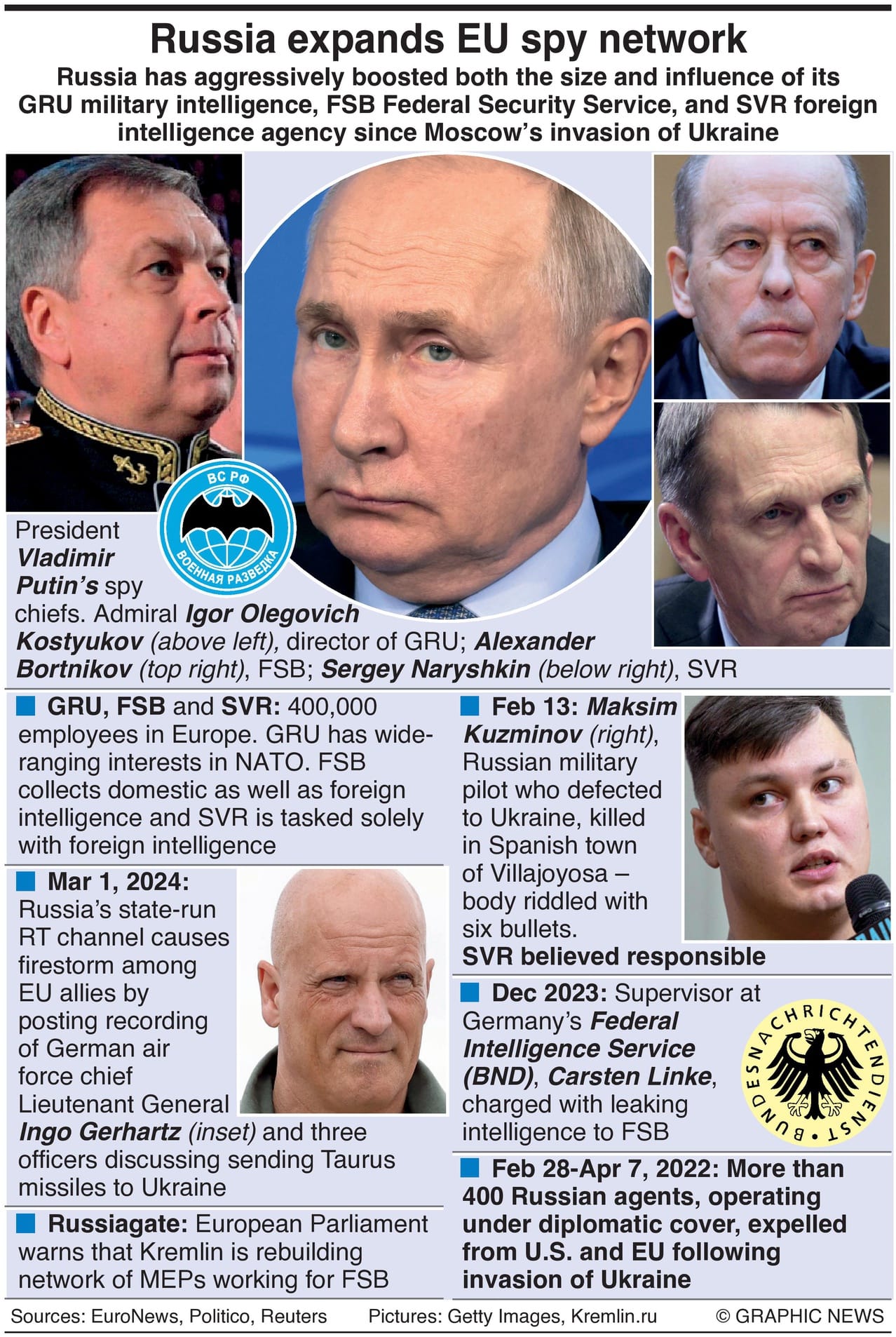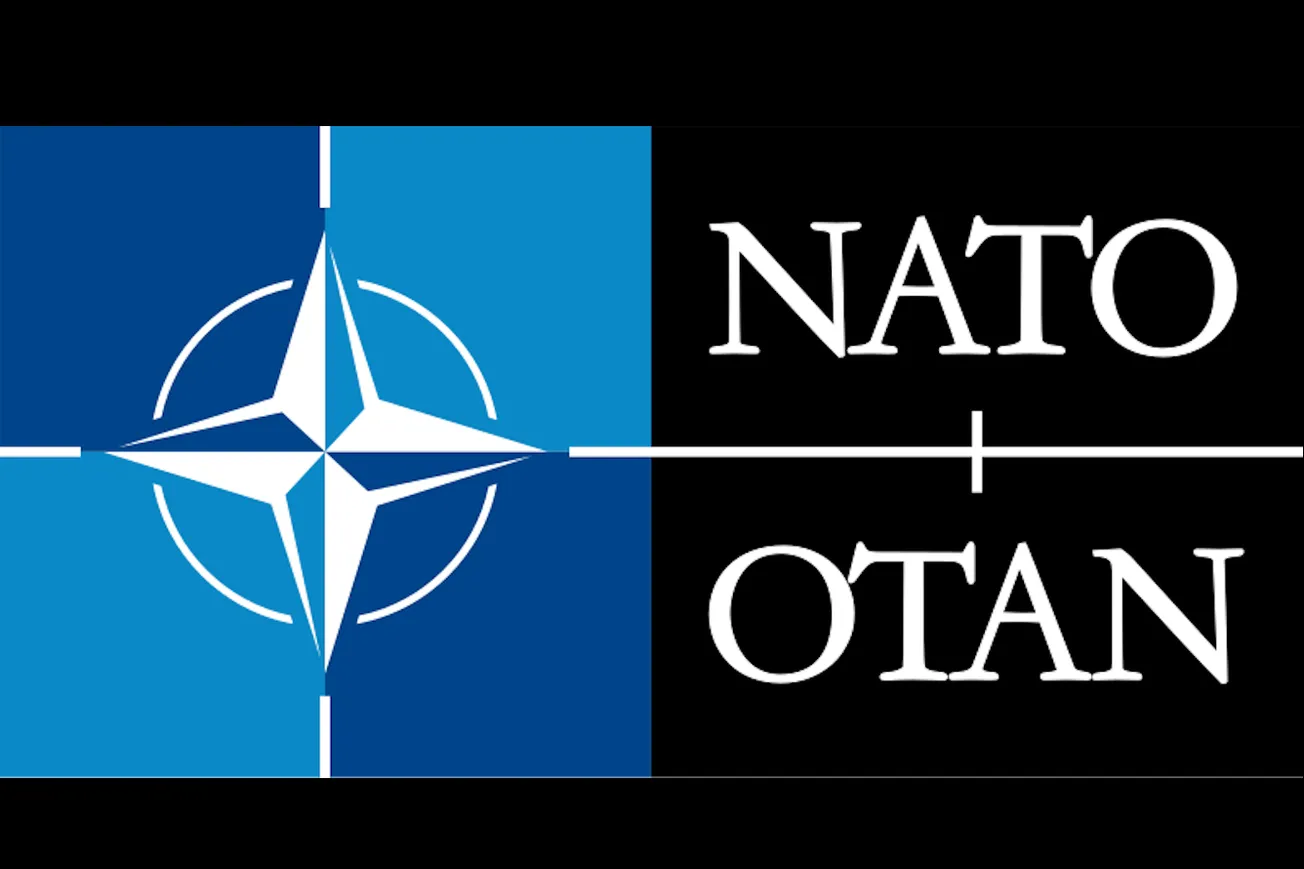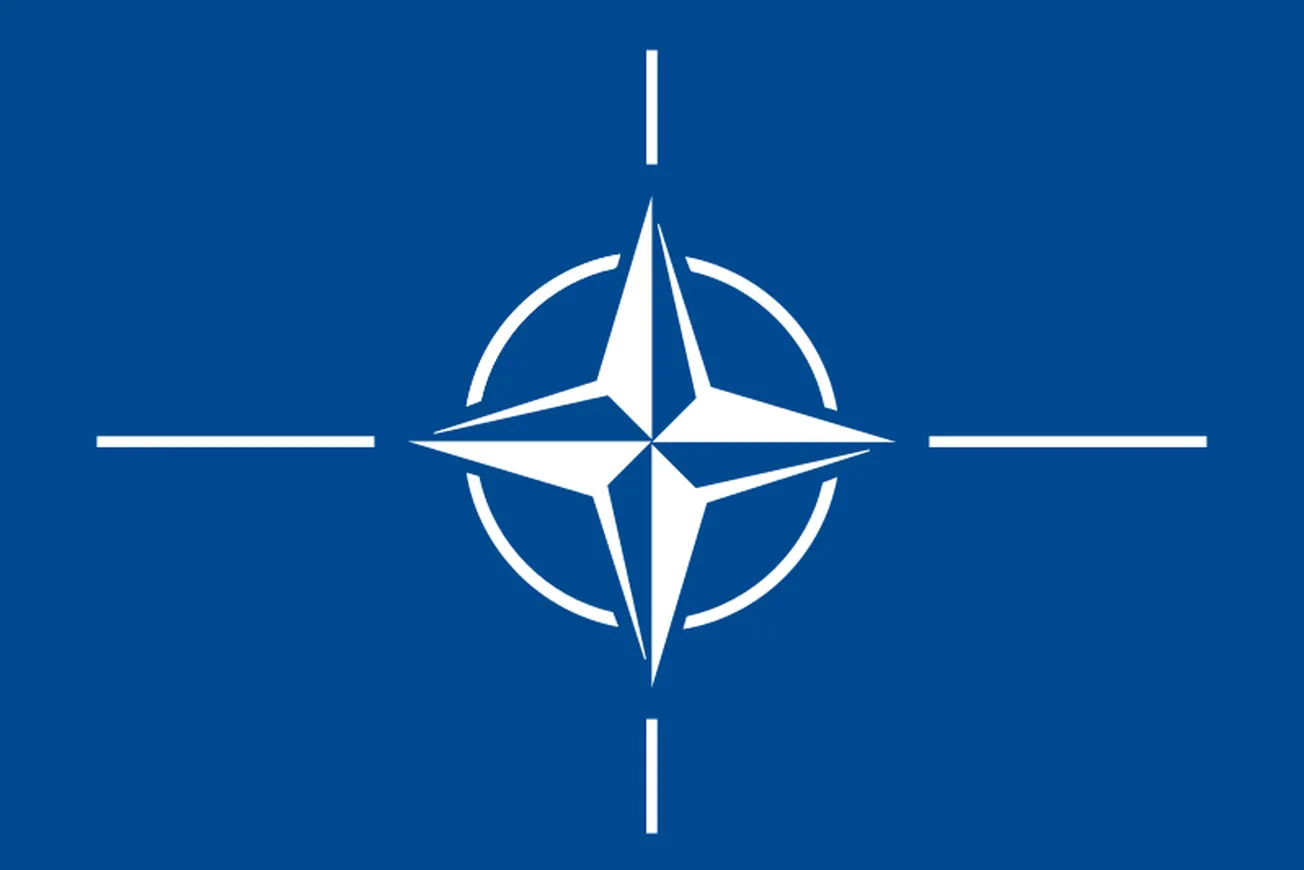With more than 400 of Russia’s intelligence agents kicked out of embassies in European capitals in the last 18 months, the Kremlin has resorted to other methods to keep their spy networks alive.

Russia’s spy networks in Europe fit into three main categories: Declared agents working at foreign embassies posing as diplomats; undeclared agents, such as trade delegations; and illegals working undercover, passing themselves off as from another country other than Russia.
“The FSB, for example, has an external department, and its role has been expanding, so it is in charge of operations in Ukraine, where it now has a huge presence,” explains Ryhor Nizhnikau, a Russia expert at the Finnish Institute of International Affairs.
On February 12, France, Poland, and Germany accused the GRU of spreading pro-Russian propaganda about the Ukraine invasion through Portal Kombat, a network of 193 fake news websites. Two weeks before that, the European Parliament opened a probe into whether a Latvian MEP might be an agent for the FSB.
However, last weekend’s leaked phone conversation between German Air Force chief Lieutenant General Ingo Gerhartz and officers discussing sending Taurus cruise missiles to Ukraine was Moscow’s most explosive propaganda coup so far this year.









